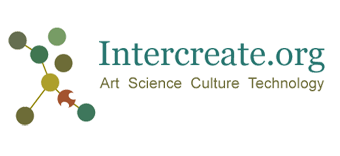SCANZ 2013: 3rd nature – hui and symposium
Feb 1st–3rd, 2013
Call for abstracts, due September 7th
We know we have built a civilisation which is unsustainable. How are we developing today the new culture that will allow us to create a sustainable civilisation?
— Roger Malina, Astrophysicist and Editor of Leonardo
Integrating indigenous perspectives with creative, environmental, scientific and academic views on reality is essential to a sustainable future. At the same time, computing and digital media are changing our relationship to culture and the environment.
On the one hand digital technology allows us to analyse and display data in new ways, as when anthropologists use language databases to shed light on the movement of culture.
On the other hand digital technology adds to our senses, and extends them beyond the body to the forests and the land. Scientists, artists and others are transforming the environment into an organism, as Maori and indigenous peoples have always known it to be.
SCANZ 2013: 3rd nature will bring together diverse people to discuss and celebrate how to approach working together across culture, discipline and media. We must work together to resolve the issues emerging at the boundary between fresh knowledge and deep knowledge, beginning with sharing knowledge and projects.
Presentations and projects which highlight cross cultural interchange and/or computing and electronics projects and/or the hybrid arts are sought. The ensuing discussion and presentations will then be shared in a special edition of Leonardo Electronic Almanac, the online publication of Leonardo – the leading Massachusetts Institute of Technology journal. Abstracts are due September 7th 2012.
The SCANZ 2013 program includes co-located project presentations and a discussion from European artists/environmental activists living and working in Belgium, Austria, Germany, Spain and the Czech Republic.
Who should attend?
Tangata whenua, indigenous peoples, scientists, artists, environmentalists, academics, philosophers, educationalists, musicians, teachers, technologists, and those concerned about sustainability, the future of Earth and humanity. Tangata whenua –people of the land – are indigenous to Aotearoa New Zealand.
The first day of the hui will be held at Owae marae. Keynote speakers are Dr Te Huirangi Waikerepuru (Aotearoa New Zealand) and Intercreate International Research Fellow Nina Czegledy (Canada & Hungary). The second and third days are to be held in Te Piere o te Rangi on the Western Institute of Technology at Taranki campus.
Presentations
There are four types of presentations which will be reviewed by robust process: peer reviewed, panel presentation, solutions and individual.
Peer reviewed
Papers can be put forward for peer review and inclusion in a special edition of Leonardo Electronic Almanac. The process will be rigorous. A peer reviewed paper could be based on a presentation made as a panel, a solution or as an individual.
Panel presentations
An important aspect of the hui and symposium will be themed discussions lead by interdisciplinary teams. These presentations will be an hour long, with panellists giving a concise 6 minute presentation (each) on their work, and then leading a discussion. Panellists will define a series of questions and then develop a position on the questions as preparation for the discussion. Panel teams can be proposed, applicants can simply indicate they wish to be part of a panel, or they will be invited.
Solutions
Solutions are 20 minute presentations about a completed project that crossed one or more of boundaries of the following: art/science (or any other Western discipline)/computing and/or indigenous awareness. This may involve reporting on projects or activity that involved a negotiation of cultural borders, with an attempt made to preserve some values from both cultures; or a computing project that put fresh light on culture, nature, the environment, science and/or art.
Individual
These are fifteen minutes duration, with a presentation of 10 minutes followed by 5 minutes of discussion. These presentations are drawn from disciplines across the spectrum. What are the health, environmental, psychological, culinary, audio, scientific, historical, engineering, business, construction, farming and/or creative implications of engaging across cultural borders or with electronic media? Presentations in this category can be from the perspective of a single discipline, but must involve engaging across cultural borders or involve electronic media. Individual refers to discussing one project, or by one presenter.
Workshops
If you are submitting a workshop, please include the word ‘Workshop’ as the first word in the title field. A workshop involving drumming would be titled ‘Workshop: Drumming’ for example.
Submission process
Abstracts will be submitted using Easy Chair, a conference management system. Instructions for using this system are the following:
- Go to: http://www.easychair.org/conferences/?conf=scanz2013
This is the Easy Chair SCANZ 2013 log in page. - Get an Easy Chair log in. You will need a working email address that you can use at the same time, as confirmation emails will be sent.
- Log in as an Author once you have your log in details.
- Then click the link at the top which says ‘New submission.‘
- Enter your submission. In the appropriate boxes, enter your name and contact details. Provide a title. Write an abstract (maximum 500 words, 350 preferred). Select the category you are applying under. Enter at least three keywords with each word separated by a line (the page does remind you to do this). You must enter at least three keywords. Check the ‘Abstract only‘ check box. Papers for those submitting them are submitted later.
- To edit your submission. You will be able to change your submission until the deadline of September 7th 2012. To change a submission, log in as an author. Click the link with the ‘Paper’ and a number. Click the ‘update information’ link on the right side of the page. Change details as required and then click the Change information button at the bottom of the form. You can also submit a new version, update authors and withdraw using the same page.
Due Date: Call for abstracts close September 7th
Note: If you are having trouble with the Easy Chair system, please contact us at ian.clothier@intercreate.org or trudy@intercreate.org.




